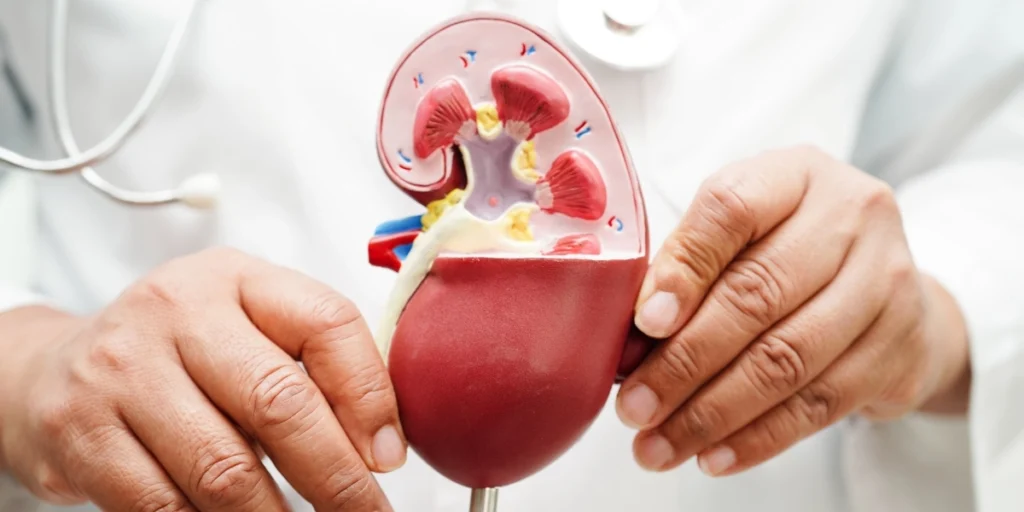
Renal trauma management in Bangalore has become a significant focus for individuals facing kidney injuries. Bangalore, renowned for its advanced healthcare facilities, ensures that kidney trauma patients receive timely and effective treatment. Whether caused by accidents or medical conditions, understanding renal trauma symptoms, causes, diagnosis, and treatment is essential for achieving a full recovery.
For individuals seeking renal trauma treatment in Jayanagar or Tilak Nagar, Bangalore offers specialized care to manage kidney injuries with precision and expertise. Additionally, the renal trauma treatment cost in Bangalore remains affordable, making it accessible for all.
Renal trauma occurs when the kidneys sustain injury, often resulting from blunt force trauma, accidents, or medical conditions. Since the kidneys are crucial organs, any damage can lead to serious health complications if left untreated. The importance of renal trauma management in Bangalore lies in its advanced medical infrastructure, which offers world-class care and treatment.
In Bangalore, healthcare facilities address various levels of renal injuries through both surgical and non-surgical approaches. Whether you’re searching for renal trauma treatment in Tilak Nagar, Jayanagar, or other parts of the city, Bangalore’s hospitals are equipped with cutting-edge technology and expert professionals.
Key Points:
Identifying renal trauma early ensures effective treatment and prevents complications. Common symptoms include:
If you experience any of these symptoms, seek renal trauma management in Bangalore immediately. Hospitals in areas like Jayanagar and Tilak Nagar specialize in diagnosing and managing kidney trauma efficiently.
Understanding the causes of renal trauma helps in preventing severe complications. Kidney injuries may result from:
Hospitals specializing in renal trauma treatment in Jayanagar and renal trauma treatment in Tilak Nagar offer targeted care for patients, ensuring fast recovery. The renal trauma treatment cost in Bangalore remains a practical option for all.
Timely and accurate diagnosis plays a crucial role in managing renal trauma. Hospitals providing renal trauma management in Bangalore use the latest diagnostic tools to determine the severity of kidney injuries. The steps involved include:
With cutting-edge diagnostic tools, hospitals offering renal trauma treatment in Bangalore ensure patients receive accurate and timely results, enabling appropriate treatment.
The renal trauma treatment in bangalore depends on the severity of the injury. Facilities offering renal trauma management in Bangalore provide both surgical and non-surgical treatment options tailored to the patient’s condition.
Minor kidney injuries can often heal without surgery. Treatments include:
For severe renal trauma, surgical intervention may be necessary:
Bangalore’s hospitals, particularly those offering renal trauma treatment in Tilak Nagar and renal trauma treatment in Jayanagar, specialize in these advanced procedures. The renal trauma treatment cost in Bangalore ensures affordable, high-quality care for all patients.
Renal trauma is treated based on its severity. Minor injuries heal with rest, hydration, and medications, while severe injuries require surgical procedures to repair damage, stop bleeding, or remove damaged kidney sections. Hospitals in Bangalore ensure accurate treatment with advanced technology and skilled professionals.
Kidney trauma recovery depends on the severity of the injury. Minor injuries typically heal within 2–4 weeks with rest and care. More severe cases, especially those requiring surgery, may take up to 3 months. Regular follow-ups and imaging tests help monitor progress during recovery.
Grade 4 renal trauma involves significant kidney lacerations and bleeding. Treatment often requires surgical intervention to repair the kidney or stop internal bleeding. In rare cases, partial nephrectomy (removal of damaged parts) may be performed. Post-surgery care ensures proper recovery and kidney function restoration.
Dr. I R Ravish Leading Urologist in India, renowned for expertise in advanced urology treatments and care.
Copyright © 2025 Best Urologist. All rights reserved.
© Designed and Developed By Cloudstar Digital
